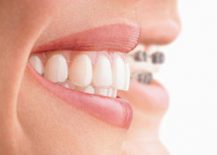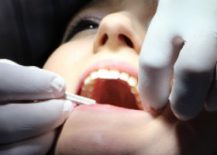COMMON DENTAL PROBLEMS IN CHILDREN
As parents, it’s up to you to set healthy standards for good oral care in your children. The good news is, most tooth problems and concerns are common, many are not serious, and all have a solution. Listen to what your children’s teeth are telling you, and they’ll reward you with a healthy smile.
KIDS, CAVITIES, AND TOOTH DECAY
Baby teeth need just as much care—if not more—as adult teeth. As tough as your child may seem, their tooth enamel still isn’t as strong as an adult’s. Sugar attacks the enamel on teeth, which can lead to decay. Since the enamel on your child’s tiny teeth is 50% thinner than the enamel on your teeth, once decay begins, it does more damage, more quickly. If left unchecked, it can then turn into a cavity. Your dentist should be able to stop it from developing into a bigger problem. Just another reason why regular dentist visits are so important.
Fluoride toothpastes are also important because they can help the tooth remineralize—that is, help prevent cavities from forming by replacing lost minerals in the enamel.
To keep your child’s smile healthy, start using proper brushing techniques as early as possible, make sure they eat a good diet, and bring them in for regular dentist visits.
YES, KIDS CAN GET GUM DISEASE
Gums have a big job—to protect the bones that hold your teeth in place. Healthy gums are important for a healthy mouth, so we need to pay as much attention to them as we do to our teeth.
It’s important to keep plaque under control because if left untreated, it can make your children’s gums swollen, so they bleed when touched. This is the start of gingivitis—otherwise known as gum disease. This is fairly common though, and improved brushing and regular cleaning by your dentist and hygienist should solve the problem. If you think your children might have gum disease, it’s best to take them to the dentist.
THE TRUTH ABOUT THUMB SUCKING
Ah, the comforting habits of kids. Most kids develop their own little habits, like thumb sucking. Many parents know it’s a tough habit for their child to break, but thumb sucking can put pressure on tiny teeth and start pushing them forward, which may lead to braces or tooth removal.
If you want your child to stop, try talking with them about it. Work out a plan so they know to make an effort. After that, make sure you call attention to it every time you notice your children thumb sucking—often they won’t even realize they’re doing it.
Here are a couple of other ideas that might help:
Make a weekly chart where they get a sticker for every day (or few hours) that they manage without thumb sucking. Then once they’ve got enough stickers, give them a reward.
Share your concern with your dentist at the next check-up and get the dentist to explain how thumb sucking might mean braces later. It might sink in more coming from the dentist!











